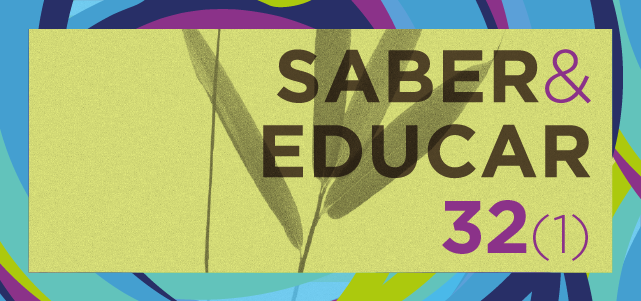Inclusive educational experiences and local community development
DOI:
https://doi.org/10.25767/se.v32i1.31238Keywords:
Inclusion, Educational experiences, Local community, Citizenship, PluralityAbstract
This contribution reflects from the anthropological perspective the keys of a pedagogy
facilitator of emancipatory care to favor an inclusive participatory development in the
local community. To this end, the experiences located in localities with a treatment are analyzed.
community generator and, from a critical point of view, problematizations are estimated in relation
with the transformative exercise of its training processes. From this sense, it investigates the
Dynamics of inclusive collective construction and critical practices with which to deconstruct
Discriminations configured in the intersectionality of relational links. In this context,
estimate the co-educational challenges of building an inclusive citizenship that takes care of its
diversity and plurality.
References
Abberley, P. (2008). El concepto de opresión y el desarrollo de una Teoría Social de la Discapacidad. En L. Barton (coord.), Superar las barreras de la discapacidad, (pp. 34-50). Ediciones Morata.
Asamblea General de las Naciones Unidas (2006). Convención sobre los Derechos de las Personascon Discapacidad. ONU. www.un.org/esa/socdev/enable/documents/tccconvs.pdf
Barton, L. (2005). Emancipatory research and disabled people: some observations and questions. Educational Review, 57(3), 317-327. https://www.tandfonline.com/doi/abs/10.1080/00131910500149325
Calán, T. & Vitón, M.J. (2023). Memoria del proceso de apoyo al proyecto de formación sociolaboral para la inclusión plena de los estudiantes de ASODIPSE. Comisión de Derechos Humanos Hispano Guatemalteca (CDHHG).
Celigueta, G. & Solé, J. (2014). Etnografía para educadores. Editorial UOC.
Cortes, J. A. & Correyero, B. (2018). Experiencias radiofónicas con personas con discapacidad intelectual y parálisis cerebral en España. Siglo Cero, 50(1), 75-95. https://doi.org/10.14201/scero20195017595
Sousa Santos, B. (2010). Descolonizar el saber, reinventar el poder. Trilce. https://otrasvoceseneducacion.org/wp-content/uploads/2019/04/Desconolizar-el-saber.pdf
Galtung, J. (1985). Twenty-Five Years of Peace Research: Ten Challenges and Some Responses. Journal of Peace Research, 22(2), 141–158. https://doi.org/10.1177/002234338502200205
Guber, R. (2019). La etnografía: método, campo y reflexividad. Siglo XXI Editores.
Kaplún, M. (1985). El comunicador popular. Ciespal, Cesap y Radio Nederland.
Ley 8/2021 reguladora en apoyo a las personas con discapacidad. BOE núm. 132, de 03/06/2021.https://www.boe.es/buscar/act.php?id=BOE-A-2021-9233
Melero, N. (2012). El paradigma crítico y los aportes de la Investigación Acción Participativa en la transformación de la realidad social: un análisis desde las ciencias sociales. Cuestiones pedagógicas, 21, 339-355. https://idus.us.es/handle/11441/12861
Pedroza, R. (2020). Investigación-acción de la ecología del aprendizaje. Educación expandida atmósferas ubicuas. Octaedro.
Rivas-Flores, J. I. (2021). Transformar la investigación para transformar la educación. En Investigación transformativa e inclusiva en el ámbito social y educativo (pp. 13-36). Octaedro.
Susinos, T. & Parrilla, A. (2008). Dar la voz en la investigación inclusiva. Debates sobre inclusión y exclusión desde un enfoque biográfico narrativo. Revista Electrónica Iberoamericana sobre Calidad, Eficacia y Cambio en Educación, 6 (2), 157-171.
Susinos, T. (2007). Tell me in your own words: disabling barriers and social exclusions in young persons. Disability and society, 22 (2), 117-127.
Velasco, H. & Díaz, A. (1997). La lógica de la investigación etnográfica. Un modelo de trabajo para etnógrafos de la escuela. Trotta.
Vitón, M.J. & Gonçalves, D. (2017). Teaching practice in higher education, knowledge and reflection learning transformational. En C.J. Santos Martínez (coord.), Current didactic methods for higher education. The Journal of Alternative Perspectives in the Social Sciences, 303-311.
Vitón, M.J. & Muñoz, P. (2022). Aprendizajes situados de un prácticum para desarrollo de una ciudadanía intercultural crítica transformadora: reflexiones pedagógicas de la acción educativa recreativa. En O.F. von Feigenblatt, B. Peña-Acuña y M.J. Cardoso-Pulido (eds.), Aprendizaje personalizado y education maker. Nuevos paradigmas didácticos y otras aproximaciones, (99-125). Octaedro.
UNESCO. (2008). La Educación inclusiva: el camino hacia el futuro, documento de referencia. 48º Conferencia Internacional sobre Educación, Geneva. https://unesdoc.unesco.org/ark:/48223/pf0000162787_spa
UNESCO. (2022). Reimaginar juntos nuestros futuros. Un nuevo contrato social para la educación. https://unesdoc.unesco.org/ark:/48223/pf0000381560?posInSet=1&queryId=bfb0f37c-b2dc-44c2-b781-317cf2d0f407
Downloads
Published
How to Cite
Issue
Section
License
Copyright (c) 2023 M. Jesús Vitón, Samuel Corchete

This work is licensed under a Creative Commons Attribution-NonCommercial-ShareAlike 4.0 International License.
- The opinions expressed by the authors are their exclusive responsibility.
- The journal reserves the right to make the original, normative changes, spelling and grammar, in order to maintain the standard language of worship, while respecting the style of the authors.
- Authors retain copyright and grant the journal right of first publication with the work simultaneously licensed under a Creative Commons Attribution License (BY-NC-SA 4.0) that allows others to share the work with an acknowledgement of the work's authorship and initial publication in this journal.
- Authors are able to enter into separate, additional contractual arrangements for the non-exclusive distribution of the journal's published version of the work (e.g., post it to an institutional repository or publish it in a book), with an acknowledgement of its initial publication in this journal.
- Authors are permitted and encouraged to post their work online (e.g., in institutional repositories or on their website) prior to and during the submission process, as it can lead to productive exchanges, as well as earlier and greater citation of published work (See The Effect of Open Access).
PRIVACY STATEMENT
The names and email addresses entered in this journal site will be used exclusively for the stated purposes of this journal and will not be made available for any other purpose or to any other party.






